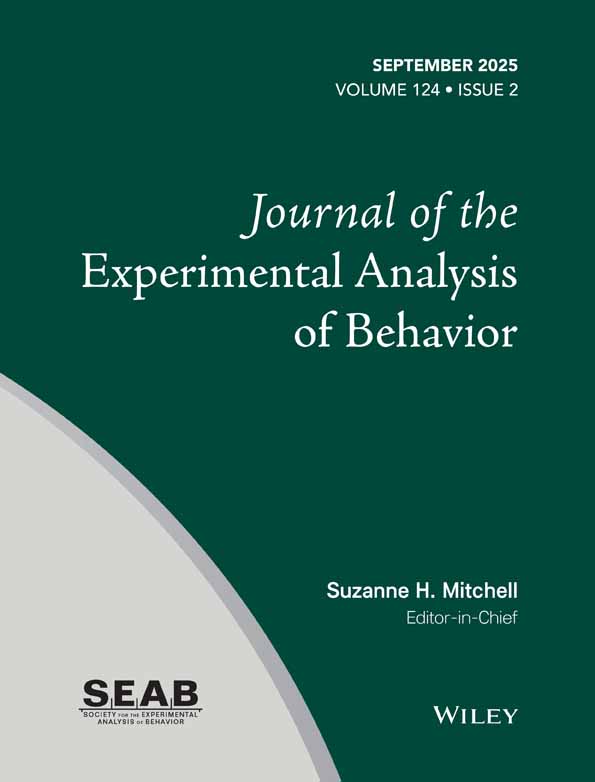AVOIDANCE CONDITIONING WITH SHOCK CONTINGENT UPON THE AVOIDANCE RESPONSE1
This research was supported by a grant-in-aid from Temple University to the first and second authors and by a PHS research grant 1 RO-1-MH-18432-01 to P. N. Hineline. Parts of these data were presented at the November 1971 meeting of the Psychonomic Society.
Abstract
Rats learned either a lever-press response, a shuttle response or a one-way crossing response, which produced one immediate shock but was instrumental in avoiding five identical shocks scheduled to occur later. These responses were acquired both with and without support of an escape contingency. These results support shock-frequency reduction as a sufficient condition for the acquisition and maintenance of avoidance.




